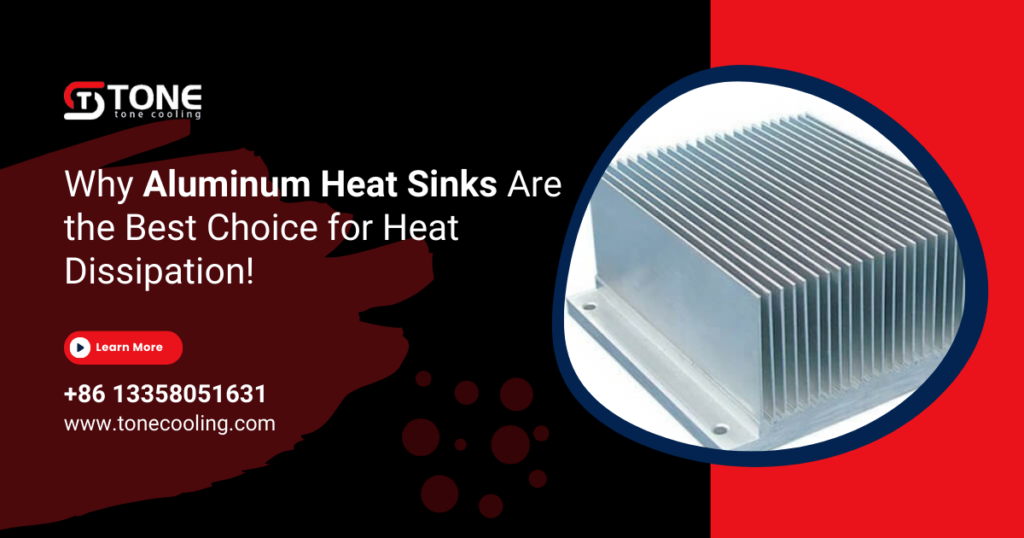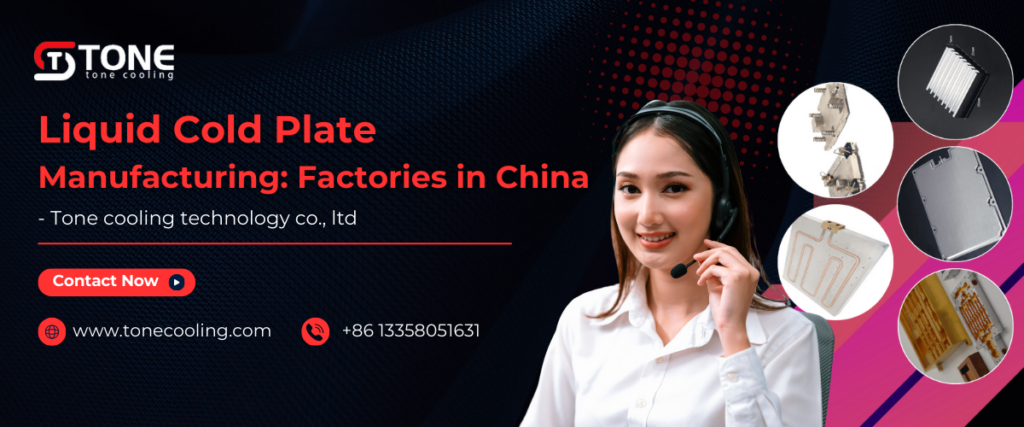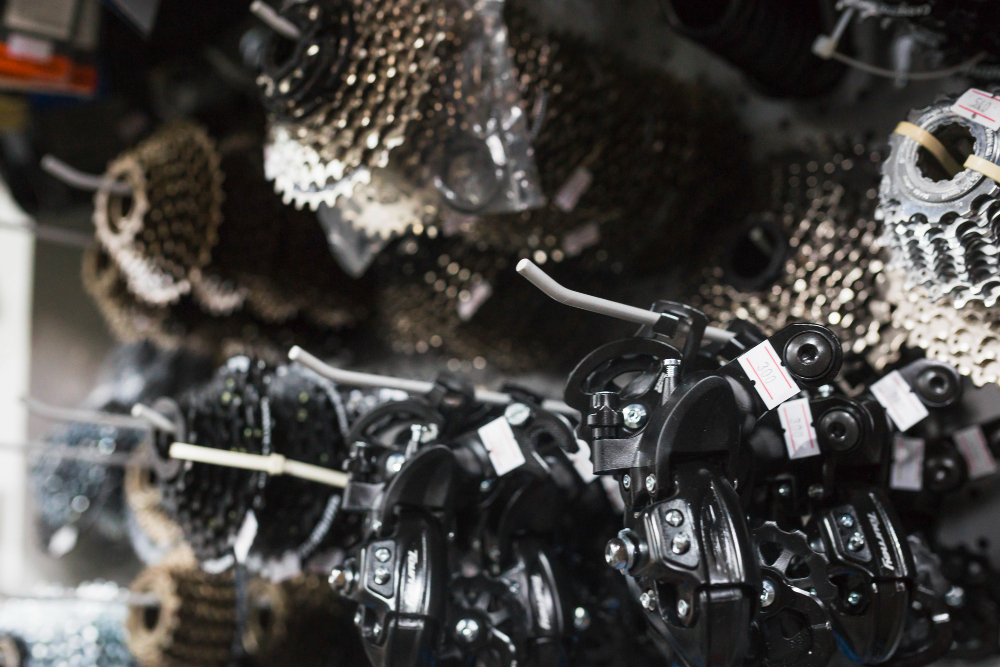As electronic devices become more powerful and compact, managing heat efficiently is more critical than ever. Overheating can lead to performance issues, component failures, and even permanent damage to sensitive electronics. Whether it’s a computer, LED lighting system, automotive component, or industrial machinery, an effective cooling solution is essential to ensure longevity and efficiency. This is where the aluminum heat sink comes into play.

What is an Aluminum Heat Sink?
A heat sink is a component designed to absorb and dissipate heat from electronic devices, preventing overheating. It works by increasing the surface area for heat transfer and allowing air or liquid to cool the device effectively.
A heat sink made from aluminum is called an aluminum heat sink. Aluminum is widely used due to its excellent thermal conductivity, lightweight nature, affordability, and ease of manufacturing. These properties make it the preferred choice for cooling solutions across various industries.
How Does an Aluminum Heat Sink Work?
An aluminum heat sink operates on three primary heat transfer mechanisms:
- Conduction: Heat moves from the electronic component to the aluminum heat sink.
- Convection: The heat sink releases heat into the surrounding air.
- Radiation: The heat sink emits infrared radiation to further dissipate heat.
By utilizing these mechanisms, an aluminum heat sink ensures that heat moves away from critical components, keeping them at an optimal operating temperature.
Why Aluminum is the Best Material for Heat Sinks
1. Excellent Thermal Conductivity
Aluminum has a high thermal conductivity, meaning it efficiently transfers heat away from components. While copper has a higher thermal conductivity, aluminum’s other advantages make it the more practical choice.
2. Lightweight Yet Durable
Aluminum’s small weight is one of its biggest benefits. Copper heat sinks, while more conductive, are significantly heavier, making them less suitable for applications where weight matters (e.g., aerospace, automotive, and consumer electronics).
3. Cost-Effective
Aluminum is more affordable than copper while still providing efficient heat dissipation. This makes it ideal for mass production in industries like LED lighting, power electronics, and telecommunication.
4. Corrosion Resistance
Unlike copper, which oxidizes over time, aluminum naturally forms an oxide layer that protects it from corrosion. This ensures a longer lifespan for aluminum heat sinks, even in harsh environments.
5. Easy to Manufacture
Aluminum can be easily extruded, machined, or die-cast, allowing manufacturers to create customized heat sink designs for different applications.
6. Eco-Friendly & Recyclable
Aluminum is 100% recyclable, making it a sustainable option for companies focused on reducing their environmental impact.
Types of Aluminum Heat Sinks
Depending on the application, aluminum heat sinks come in various designs:
1. Extruded Aluminum Heat Sinks
- Most common type
- Created by pushing aluminum through a die
- Used in LED lighting, power electronics, and computers
2. Skived Fin Aluminum Heat Sinks
- Ultra-thin fins for better heat dissipation
- Ideal for high-performance applications
3. Bonded Fin Aluminum Heat Sinks
- Made by bonding aluminum fins onto a base
- Used in high-power industrial applications
4. Stamped Aluminum Heat Sinks
- Produced using stamping and folding processes
- Common in consumer electronics
5. Die-Cast Aluminum Heat Sinks
- High-precision cooling solutions
- Used in automotive and medical devices
Each type has specific advantages, so choosing the right one depends on your cooling requirements and industry application.
Industries That Rely on Aluminum Heat Sinks
✅ Computing & Electronics
Laptops, desktops, and gaming consoles rely on aluminum heat sinks to keep processors, GPUs, and power supplies cool.
✅ LED Lighting
Aluminum heat sinks improve the longevity of LED bulbs by preventing heat buildup.
✅ Automotive Industry
Modern electric vehicles (EVs) and hybrid cars use aluminum heat sinks for battery cooling, inverters, and power electronics.
✅ Aerospace & Defense
Due to their lightweight nature and durability, aluminum heat sinks are used in avionics and radar systems.
✅ Industrial & Telecommunication Equipment
Base stations, data centers, and high-power industrial machinery all use aluminum heat sinks for efficient thermal management.

How to Select the Best Aluminum Heat Sink for Your Requirements
🔹 Understand Your Heat Load
Determine the power dissipation of your device to select an appropriately sized heat sink.
🔹 Consider Airflow & Mounting Options
Different heat sinks work better with natural convection than forced airflow. Choose a design based on your cooling setup.
🔹 Surface Finish & Coatings
Black anodized aluminum heat sinks provide better radiation heat dissipation.
🔹 Size & Weight Constraints
Ensure the heat sink fits within your device’s size limitations.
An aluminum heat sink is the best choice for efficient, cost-effective, and durable heat dissipation. Its high thermal conductivity, lightweight nature, corrosion resistance, and ease of manufacturing make it ideal for a wide range of applications. Whether you need to cool electronics, LED lights, automotive systems, or industrial machinery, an aluminum heat sink provides optimal thermal management at an affordable cost.
If you’re looking for reliable and high-performance aluminum heat sinks, Tone Cooling Technology Co., Ltd. offers custom-designed solutions to meet your cooling needs.
FAQs
1. Why is aluminum used for heat sinks instead of copper?
Aluminum is lighter, cheaper, and easier to manufacture while still providing good thermal conductivity.
2. How do I choose the right aluminum heat sink?
Consider your heat dissipation requirements, airflow setup, size constraints, and mounting options.
3. Can an aluminum heat sink cool high-performance processors?
Yes! Many high-performance CPUs and GPUs use aluminum heat sinks with liquid cooling or heat pipes for enhanced cooling.
4. Are aluminum heat sinks recyclable?
Yes, aluminum is 100% recyclable, making it an eco-friendly cooling solution.
5. Where can I buy high-quality aluminum heat sinks?
You can contact Tone Cooling Technology Co., Ltd. for custom heat sink solutions tailored to your needs! 🚀



